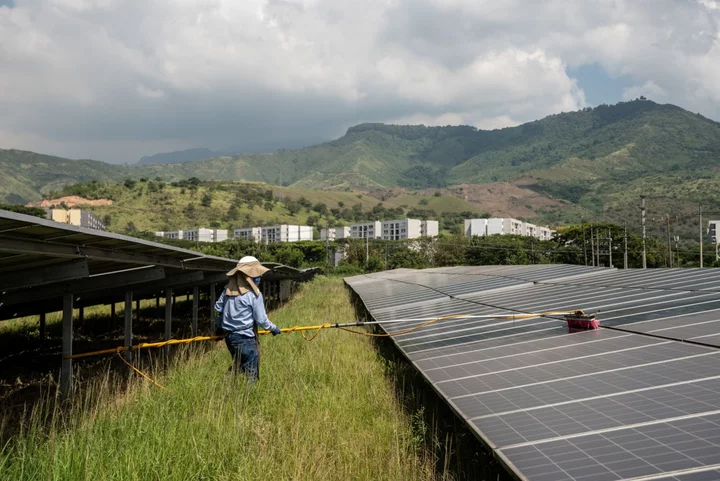Corporations relying on carbon credits to support their green claims now face “robust and credible” proof that the vast majority of such securities aren’t fit for purpose, according to a study published in the journal Science.
The research, which analyzed 18 carbon-offset projects across Peru, Colombia, Cambodia, Tanzania and the Democratic Republic of Congo, found that only 5.4 million — or 6% — of a potential 89 million credits were linked to additional carbon reductions through preserved forests. More than 60 million carbon credits originated from projects that barely reduced deforestation.
“There has been a suspicion that these carbon credits lead to greenwashing,” Andreas Kontoleon, the study’s senior author and a professor of environmental economics and public policy at the University of Cambridge, said in an interview. “We now have robust and credible evidence that offset programs have deficiencies.”
A carbon credit is a paper security that’s supposed to represent one ton of CO2 reduced or removed from the atmosphere, generated by projects like wind farms or planting trees. Buyers can trade the units or use them to offset their own emissions, in which case they must retire the credit to avoid it being used twice.
The study’s findings underscore the risk of stranded assets in carbon offsetting. They also raise questions about the carbon-neutral claims of companies that rely on such credits.
The forest-protection projects, known as REDD+, generate carbon credits that represent the carbon that will no longer be released through deforestation. All told, voluntary REDD+ projects in 2021 issued 150 million credits valued at $1.3 billion, according to the study in Science. An earlier draft of the study was available online in January.
Trafigura Group, the world’s largest trader of carbon-removal credits, recently suspended a consignment of REDD+ credits as it awaits the results of a probe into the forestry project behind the units. Millions of carbon credits are also lying dormant on the accounts of Vitol SA, while units of SMS Holding BV wrote off about 1.5 million credits last year.
The 18 sites studied had issued 62 million carbon credits as of November 2021, of which 14.6 million have already been used by individuals or organizations to offset their greenhouse gas emissions. The upshot is that “these projects have already been used to offset almost three times more carbon than they have actually mitigated through forest preservation,” Kontoleon said. “And that’s with over 47 million credits still available in the market.”
The project offsets detailed in Science were certified by Verra. The standard setter said it has “significant concerns” about the study’s methodology because of the small sample size.
Extrapolating the study’s conclusions to all carbon offset projects is unwarranted when only about one out of four projects have been examined, Verra said. “We recognize the areas for improvement in the current system and are committed to fostering that ongoing evolution,” Verra added in a statement on its website.
Terms of the offset purchase contract will determine whether a company that buys junk credits gets any compensation from the offset provider, according to Kontoleon. He said adjustments can be made when offset agreements are evaluated, which is typically every five years.
There are several reasons why offset programs fail to deliver the benefits they claim to provide, according to the study. Projects often rely on historical trends that can be inaccurate, or they are located in areas where the conservation rate is already high.
Current certification rules require fixed periods for projections, so it can be hard to adapt to changes in deforestation rates. And techniques for predicting deforestation may be “opportunistically inflated” to maximize revenues from credit sales, the researchers said.
“The industry needs to improve its protocols and its transparency,” said Kontoleon. “It needs reform.”
(Adds comments from Verra in 10th paragraph.)

